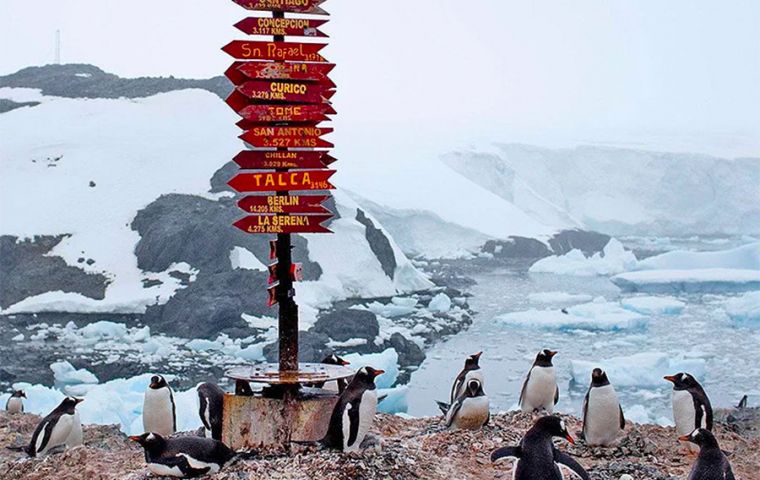MercoPress. South Atlantic News Agency
Requirements for visiting Antarctica, according to the Foreign Office

This guide sets out who has to apply for a permit, how to apply and explains the other rules covering travel to Antarctica. The Antarctic Treaty signed in Washington on 1 December 1959 preserves the Antarctic continent for peaceful and scientific use.
The Antarctic Treaty does not prevent tourists, military personnel or scientific researchers from being present in Antarctica - but they do require an appropriate permit from a Treaty Party.
Permit criteria
Anyone on a British expedition to Antarctica or taking a British vessel or aircraft into Antarctica will need to apply for a permit from the Polar Regions Department of the Foreign, Commonwealth & Development Office (FCDO).
A British expedition is one organized in the UK (including a British overseas territory, or a Crown Dependency) or one where the last place of departure for Antarctica is the UK, a British overseas territory, or a Crown Dependency. ‘Expedition’ consists of a single person or group, undertaking a tour or journey of any purpose, including activities such as landing ashore, skiing, kayaking, small boat activities, climbing, diving or any related activity. A British (including OT or Crown Dependency) flagged vessel or registered aircraft also requires a permit even if the expedition is organized elsewhere.
You do not need a permit for:
- ships or aircraft travelling to an immediate destination outside Antarctica
- fishing vessels, unless they are conducting research fishing or are carrying out functions related to an expedition
- expeditions organized in and authorized in writing by another contracting party (country) to the Environmental Protocol to the Antarctic Treaty
If you plan to undertake commercial fishing activity in the Southern Ocean, you must seek separate authorization for your vessel, as set out in the guidelines to CCAMLR fisheries for British registered vessels fishing for profit.
It is also unlikely that you will need a permit if you are a passenger on an organized visit to Antarctica, as your tour operator would usually arrange this. However you should confirm this with them before travelling. Contact the Polar Regions Department if you are still unsure.
Applying for a permit
You should submit applications for permits as far in advance as possible. This should be at least 4 months for a new or unusual application, or at least 2 months before the date of your departure if you have previously obtained a permit for summer activities. Late applications may not be considered.
Organizers must demonstrate that they are sufficiently prepared for a visit to Antarctica. You should discuss your plans informally with the Polar Regions Department before you begin completing the permit application. This is especially important if your expedition involves specialist activities such as extreme sports, extended trips or multiple transport options.
Applying for a permit to conduct research fishing
You must conduct research fishing in the Antarctic Treaty Area in accordance with the Convention for the Conservation of Antarctic Marine Living Resources (CCAMLR), in particular its Conservation Measure 24-01.
Research fishing under paragraph 2 of CM24-01 involves taking less than 50 tons of finfish and less than the limits for non-finfish taxa as set out in Annex B of the Conservation Measure. If you are proposing to conduct research fishing under paragraph 2, you must:
- complete an Expedition Permit Application Form and submit this to the Polar Regions Department by 12 May 2022
- confirm that you will comply with all relevant CCAMLR Conservation Measures
Research fishing under paragraph 3 of CM24-01 involves taking more than 50 tonnes of finfish and more than the limits for non-finfish taxa as set out in Annex B of the Conservation Measure. If you are proposing to conduct research fishing under paragraph 3, you must:
- comply with the requirements of paragraph 3 of CCAMLR Conservation Measure 24-01
- complete Sections 1-6 of an Expedition Permit Application Form, and submit this together with the required Research Plan to the Polar Regions Department by 12 May 2022
- confirm that you will comply with all relevant CCAMLR Conservation Measures




Top Comments
Disclaimer & comment rules-

Read all commentshttps://www.youtube.com/watch?v=B4AisxkqNqI
Aug 20th, 2022 - 10:53 am 0Comandante Ferraz Station - Brazilian Base in Antarctica
Commenting for this story is now closed.
If you have a Facebook account, become a fan and comment on our Facebook Page!